Ubisoft Quartz NFTs Have Made Less Than $700 USD Across 18 Sales Since Launch
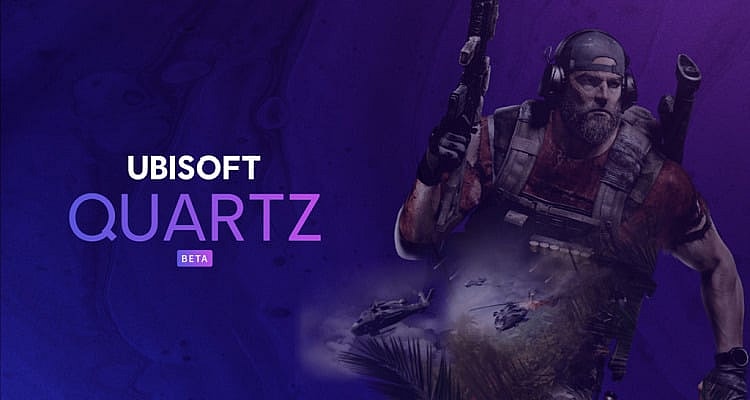
Ubisoft’s venture into NFTs, the aptly named ‘Ubisoft Quartz’ – has reportedly made less than $700 across 18 sales since the crypto-gaming attempt launched earlier this month.
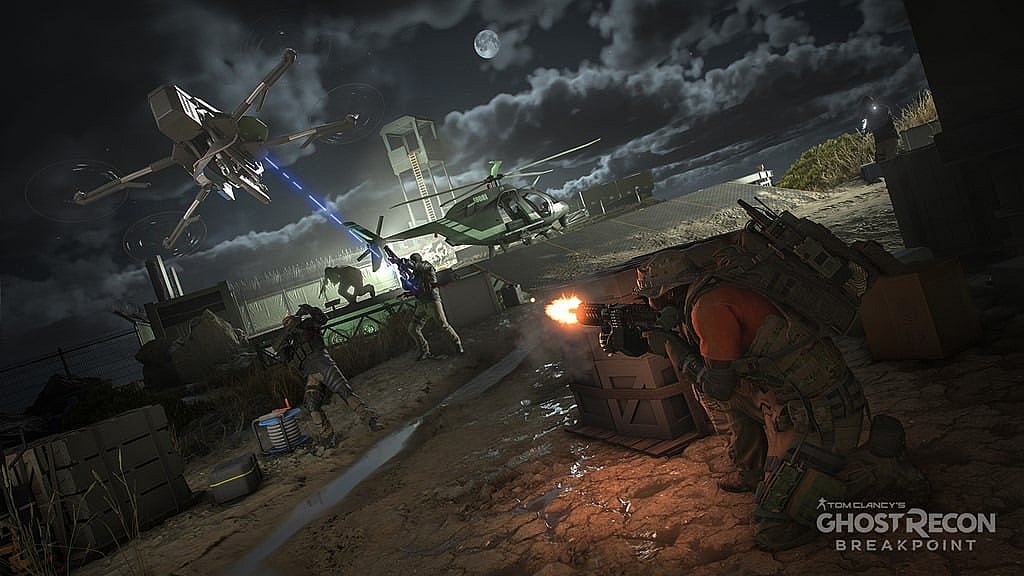
Related: Batman Artist Neal Adams Puts Several Pieces Of His Comic Book Art Up For Auction As NFTs
For those unfamiliar, NFTS, or Non-Fungible Tokens, are a form of ownership data which relies on a blockchain system to verify one’s ownership of a photo, video, or more. However, it should be noted that the purchase of NFTs does not confer any actual ownership of a given item to its owner.
As explained by the concept’s co-creator Anil Dash in a piece for The Atlantic, most blockchains are too small to hold the data of an entire image. So, when someone buys an NFT, they’re actually buying the rights to a hyperlink url which represents an image held on an outside server.
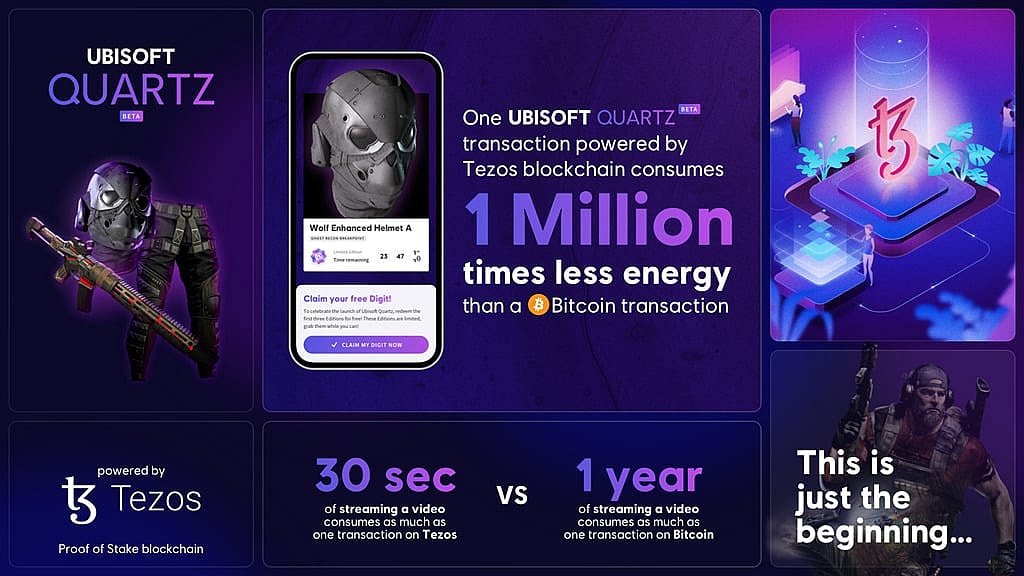
“And worse,” Dash continued, “they’re buying a link that, in many cases, lives on the website of a new start-up that’s likely to fail within a few years. Decades from now, how will anyone verify whether the linked artwork is the original?
Aside from concerns over ownership, NFTs have also been frequently scrutinized for their high carbon footprints and their frequently use in scams [1, 2].
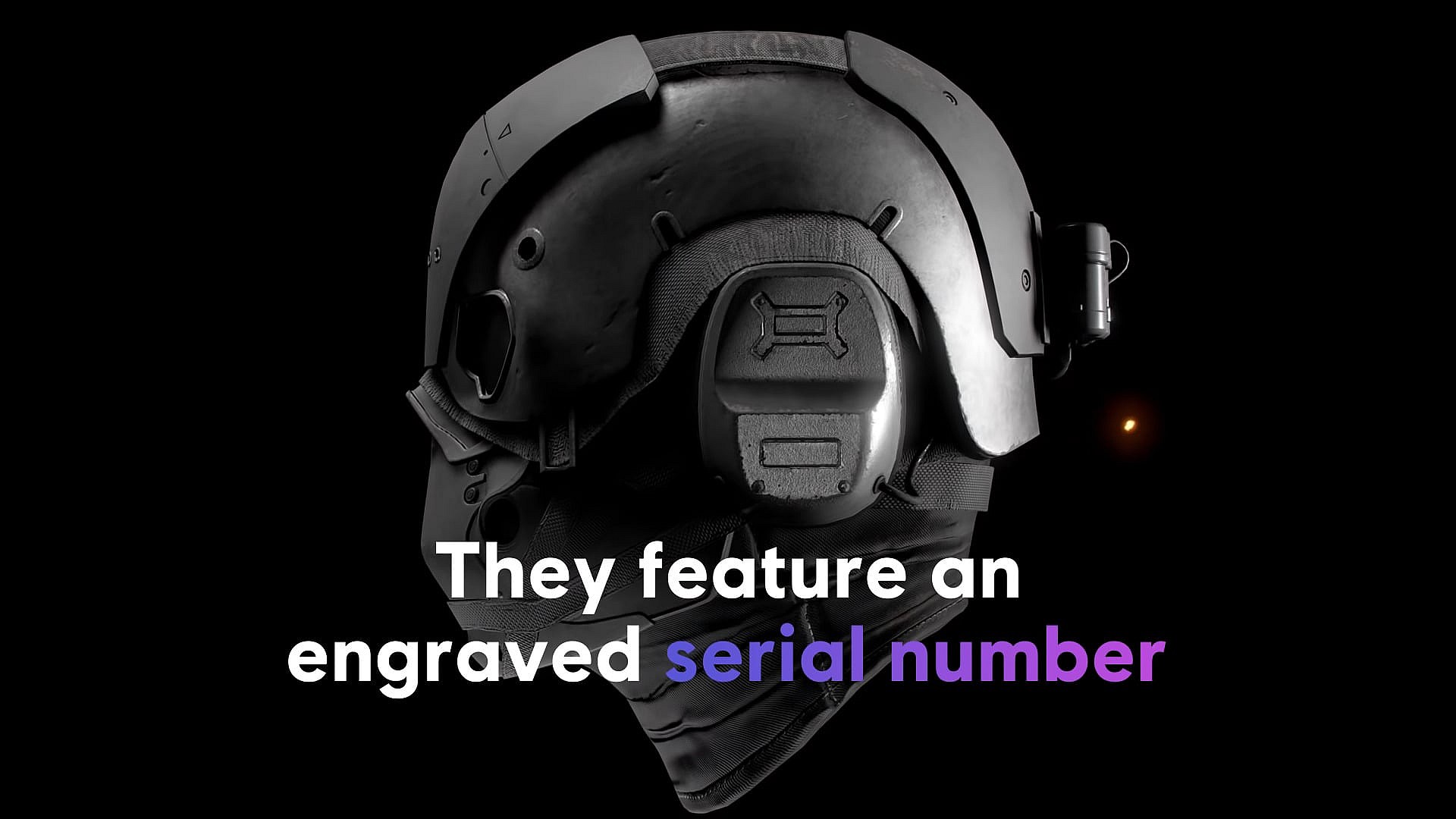
Ubisoft Quartz was announced back in December 7th and touted as “the first energy-efficient NFTs playable in a AAA game.”
The first of these “Digits” – the in-house name for the Ubisoft NFTs – was launched for Tom Clancy’s Ghost Recon Breakpoint on December 9th and made available exclusively to players who pre-registered for the Quartz platform.
Composed of unique cosmetic items, vehicles, weapons, and equipment, Ubisoft claims that these Digits offer “players unprecedented ways to connect with and enjoy more value from the games they love.” Each Digit also has its own serial number which other players can see in-games.
Following the first drop on December 9th, Ubisoft’s experiment saw two more Ghost Recon Breakpoin Digits release on December 9th and 12th, respectively, with the studio noting that more drops are also planned for Early 2022.
However, it seems the experiment may not have turned out as Ubisoft had hoped, as the Quartz platform and system was immediately met with criticism and backlash upon its launch.
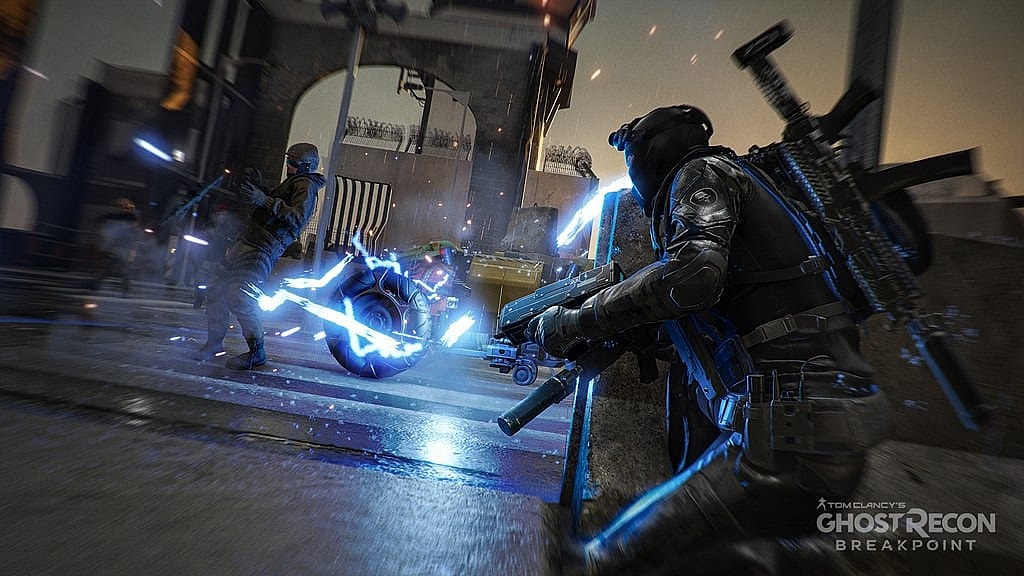
For example, some players took issue with how long they would have to play to earn an NFT, with Forbes’ Senior Contributor Paul Tassi highlighting how the first Quartz drop, a helmet, would have taken 600 global playtime hours to earn – assuming he was one of the first 250 to do so.
“That’s 25, full 24 hour days of Ghost Recon Breakpoint, for those keeping score,” he remarked.
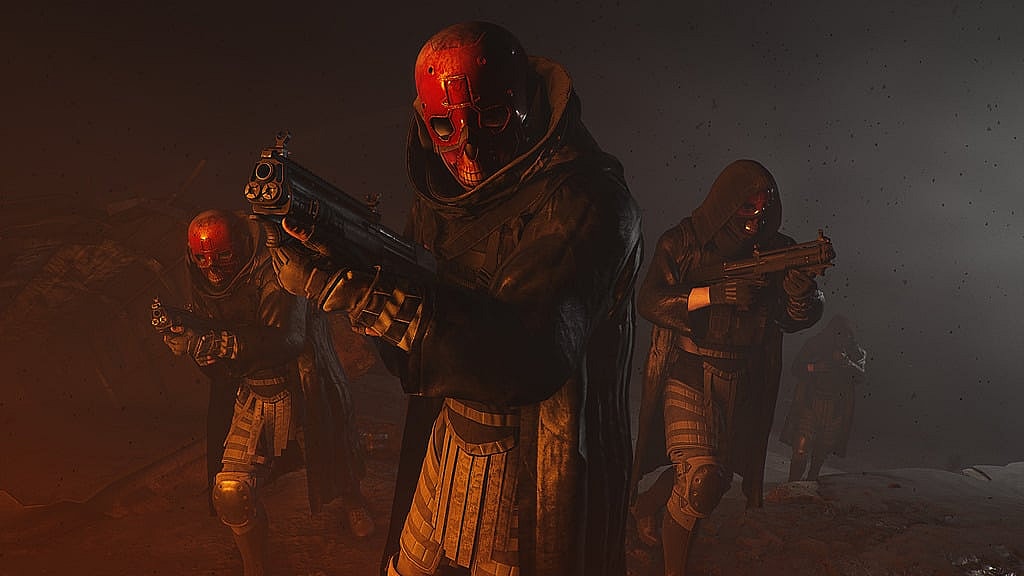
The required hours for unlocking subsequent drops also varied wildly, with a gun limited to only 2,000 copies requiring no game time to acquire, while a pair of pants asked players to put in 100 hours of playtime.
Tassi was also critical of the potential for Digits to enter Ubisoft’s own marketplace and inflate in value, lamenting how, “In the long term, Ubisoft will no doubt be taking a cut of these sales.”
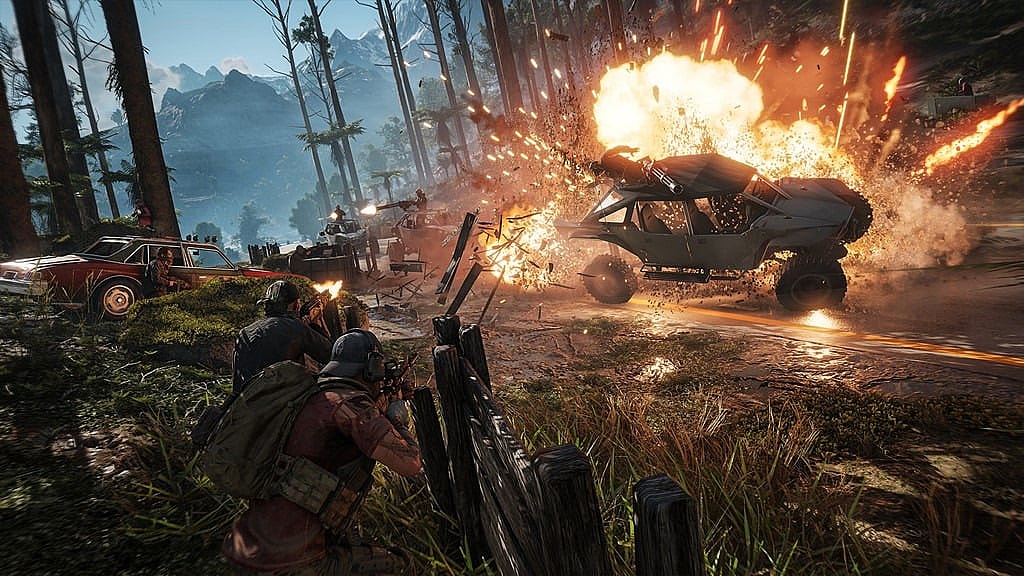
Eventually, just 11 days after the platform launched, Apex Legends Senior Character Artist Liz Edwards made a damning claim on Twitter, asserting on December 20th, “I looked at the 2 3rd party marketplaces the Quartz site links and there seems to be… 15 sales total? 0 in the last day on 1 site? am i reading this right?”
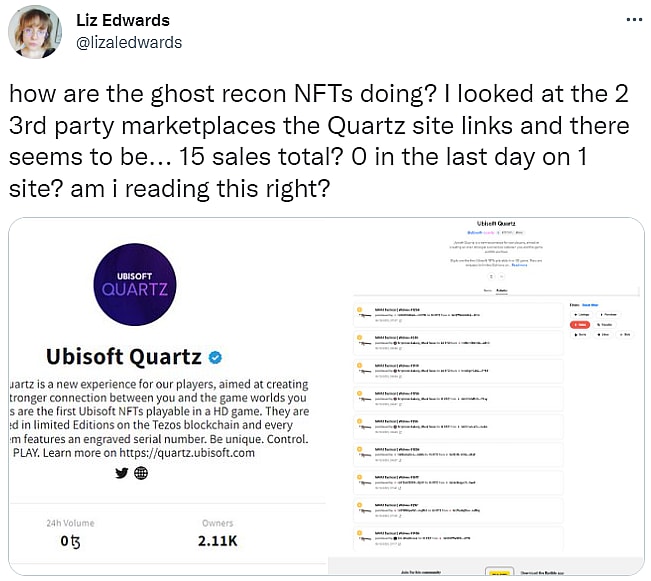
Edwards continued to dig into the Tezos-powered Ubisoft Quartz marketplace and discovered that the sales had made just over $396.43. “Am i understanding this right?” Edwards begged in disbelief. “Ubisoft managed to make an nft that not even nft fans want? because that is very very very funny.”
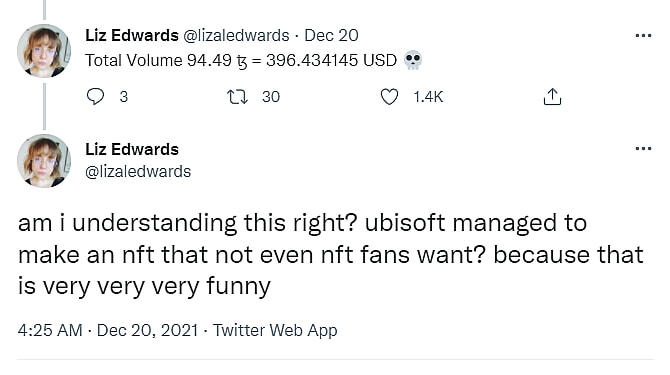
As of writing, NFT markplace objkt.com reports that the total trade volume amongst Digit owners has only grown by roughly 52 Tezos (approx. $225 USD) to a high of $635 USD, whilst the total number of owners has only grown by about 300.
Further, according to fellow NFT marketplace Rarible, only 18 Digits have been sold amongst players between the project’s launch and December 29th.
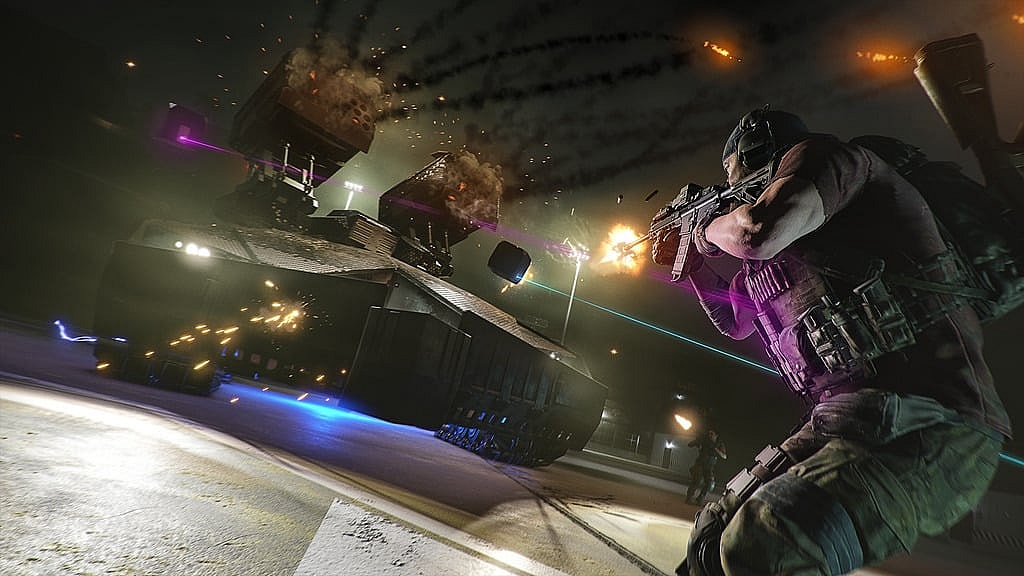
So why the lack of success? NFTs are controversial, unpopular, and even confusing to all but those interested in them.
As such, Ubisoft’s NFTs would have to not only ingrain their use amongst players, but also compete to remain relevancy amongst both non-player “investors” and competitive in comparison to other more stable NFTs (as far as they go, anyway).
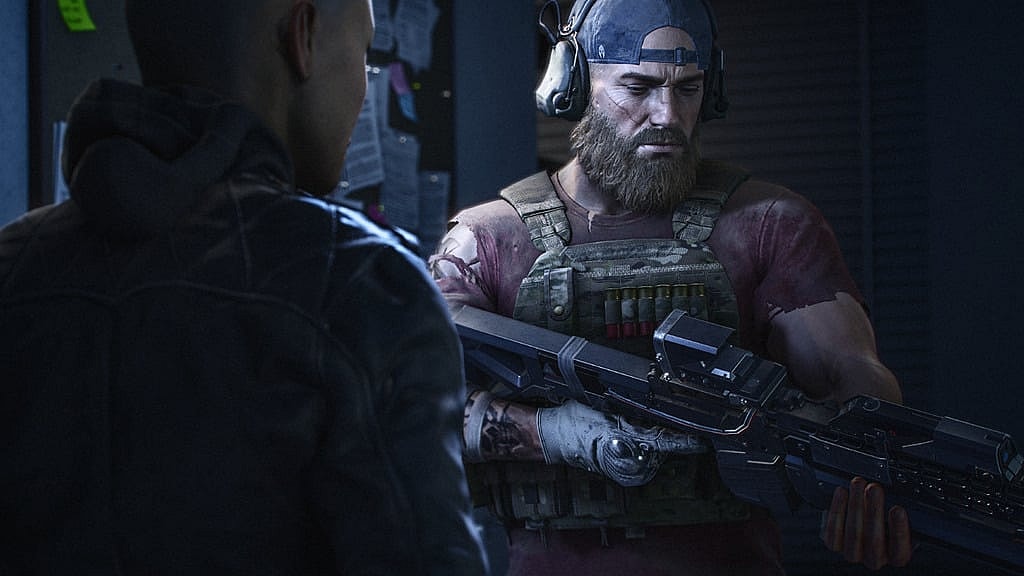
Another reason may be Ubisoft’s utilizing of Tom Clancy’s Ghost Recon Breakpoint- a game that players have universally panned [1, 2, 3, 4] – as its roll-out platform.
How better to encourage fans to play a loathed game, than with an equally loathed crypto scheme? Seemingly, anything else.
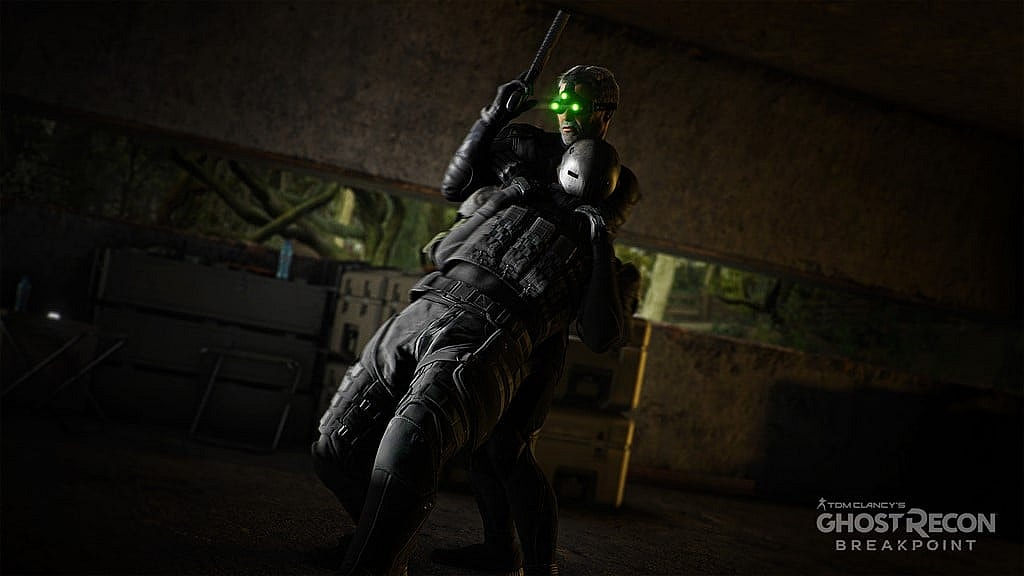
What do you make of Ubisoft’s attempt to enter the NFT market? Let us know your thoughts on social media or in the comments down below!
